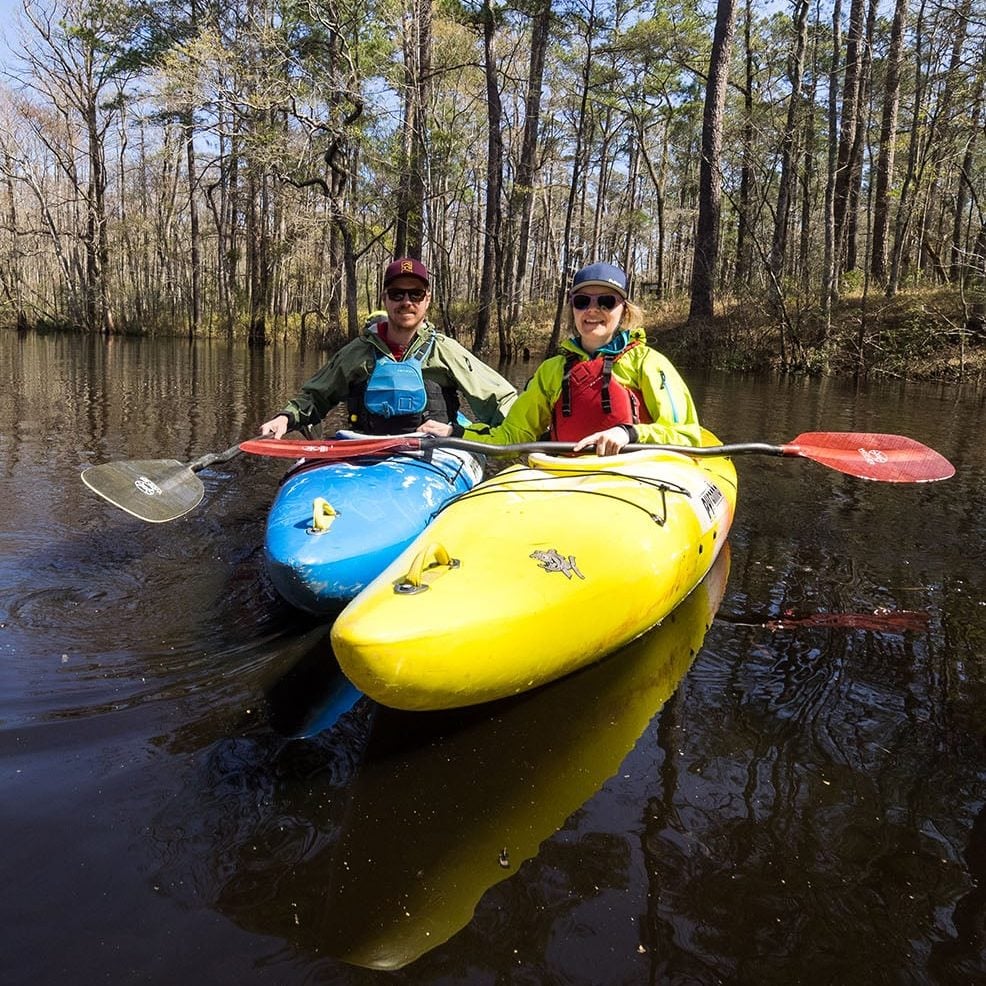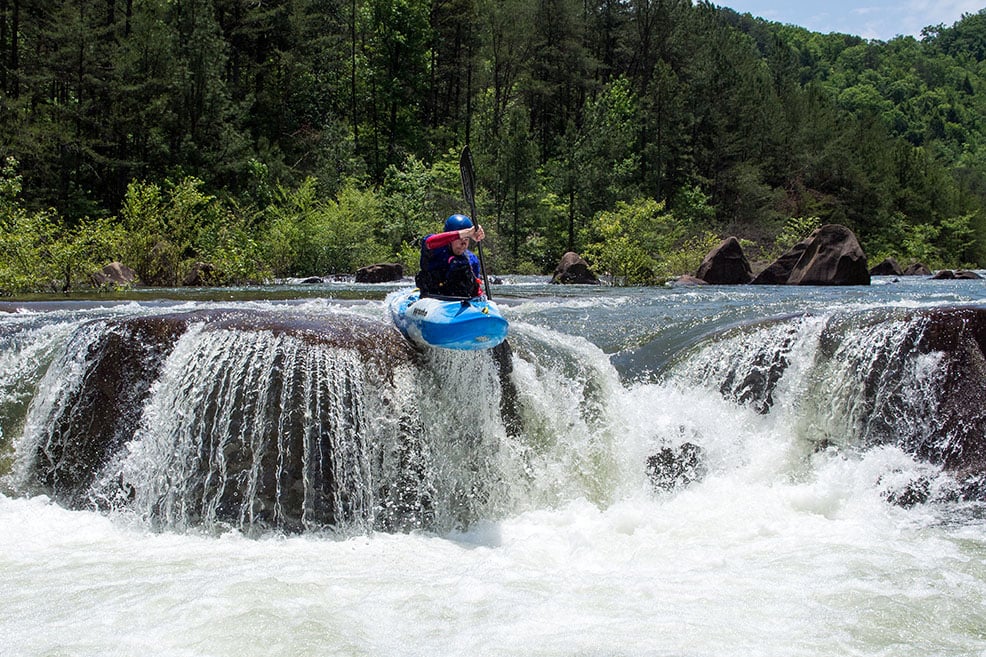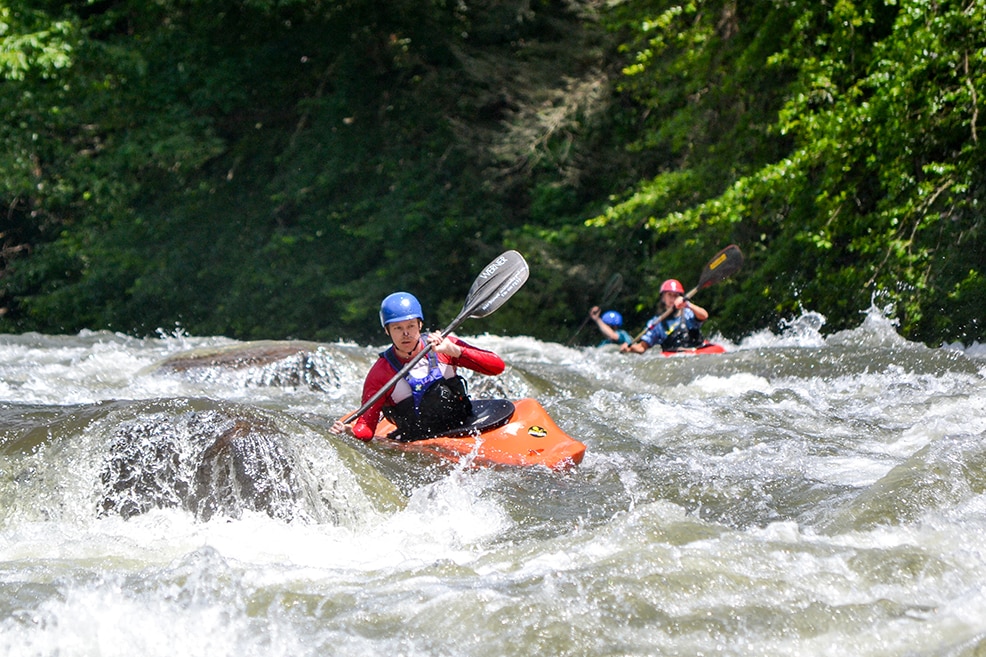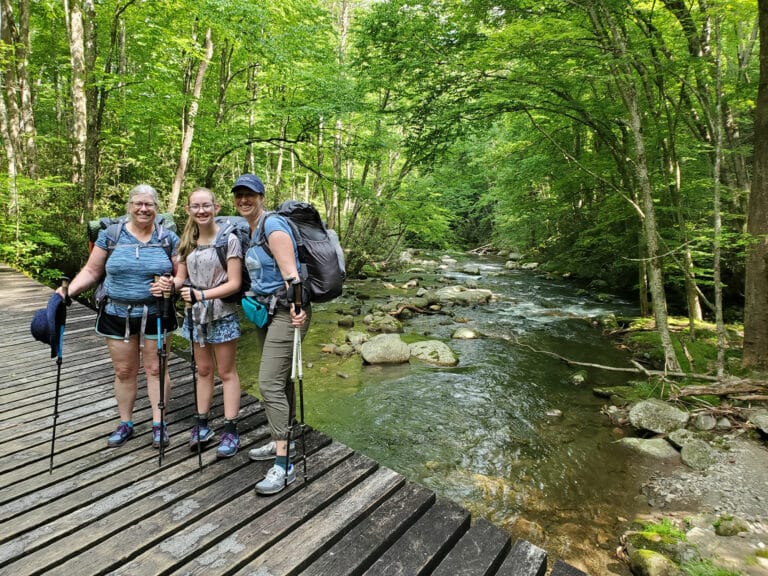Tracing a lifetime of adventures on the water in 25 boats
THE FIRST TIME I EVER WANTED TO TRY kayaking was during a guided raft trip with the Boy Scouts. We were on the class III Gorge section of the South Fork American River in California, and I was around 14 years old. As our raft plowed through fun rapids, I watched skillful kayakers dipping their blades, swiveling their torsos, and expertly maneuvering sleek boats through crashing hydraulics. I want to do this, I thought. Learn to kayak, be a raft guide. So, I asked the late-20s guide about it.
“Much harder than it looks,” he said, launching into a dispiriting lecture about how difficult it is to become a raft guide and, even more challenging, a kayaker.
Being an impressionable kid, I accepted the guide’s dismissive claims. Somehow, this mythical figure could sniff out whitewater potential, and I clearly had none. Discouraged, I let the dream float away.
Later that summer, my aunt’s boyfriend invited me to go kayaking. I eagerly agreed, hoping it might involve easy whitewater. But the kayaks were clearly flatwater rec boats, and our destination was a mellow section of the Lower American. Still, I was excited to finally paddle any kind of kayak.
I hopped inside a big yellow boat and off we went. Three of us paddled upstream for several miles until the turnaround point, a riffle too swift to ascend. As the others turned downstream, I kept paddling into the current, trying to reach the rapids. Eventually, the others were out of sight, so I gave up and chased after them.
The second kayak I ever paddled was for whitewater—a massive red Perception Corsica. This 11-foot boat was manufactured from rotomolded plastic in the mid-1990s, but it wasn’t until 2001 when I paddled it into the current. By now, I was a first-year raft guide on the Gorge section of the South Fork American. While paddling whitewater was challenging and did carry risks, it wasn’t nearly as impossible as the cocky guide had declared six years before.
Though my new rafting friends and I had no idea how to kayak, we careened down the Gorge rapids anyway. We smacked boulders and holes broadside, flipped over, wet exited. After hard-knock swimming with our yaks to shore, we drained them, laughed it off, tried again. We were nothing like the skillful kayakers I’d witnessed as a boy. But we were clearly having fun, so why stop?
The third kayak I paddled was an inflatable ducky. A group of us guides took them on a trip across Northern California to rivers like the McCloud, Trinity, and Klamath. With each mile, we were getting the hang of reading water and navigating rapids.
The fourth kayak I paddled was a Wave Sport Godzilla. This whitewater boat was cutting edge at the time, but my hardshell kayaking still wasn’t. By now, I’d learned how to paddle full speed ahead through rapids, which worked 80 percent of the time. But lacking the ability to consistently roll upright, I still swam plenty of rapids.

Photo: The author and his wife paddling their Pyranha Fusions on Wambaw Creek in Francis Marion National Forest, S.C. Photo by Mike Bezemek
The fifth kayak was a Pyranha Inazone. I was too tall for this whitewater demo, but I stubbornly crammed inside anyway and spent the whole day hurting. I jealously watched my new girlfriend comfortably demo a Dagger RPM—which later became the sixth kayak I paddled.
Late that summer, my girlfriend and I tried our first sea kayaks (#7) on the Sea of Cortez in Baja. We paddled out toward a curious flock of birds floating on the water. Then we paddled swiftly away when we realized these were actually the raised flippers of sea lions. The herd scattered, with several charging toward us. One even slapped against my hull, but eventually they all broke away. As we paddled back to our cabana, a massive sea turtle broke the surface. It must have been disturbed by the chaos because it gave us an annoyed look like, do you even know how to kayak? The turtle exhaled in a huff and dove beneath the waves.
While descending a volcano that fall, I ruptured a disc in my spine. I discovered I couldn’t sit in a kayak without intense pain. But within a few years, I luckily recovered enough to try again. The eighth kayak I paddled was a friend’s Wave Sport Big EZ, the revolutionary river-play boat of its time. I made it down the Gorge, but the pain lingered, so I waited another few years before kayaking again.
The ninth kayak I paddled was a Riot Booster. My roll was still fifty-fifty, but I nailed the best one yet. The river was running high at 5,000 cfs, about four times the typical summer flow. I flipped over below Satan’s Cesspool in a flushy constriction. I swept my paddle blade and came right up in fast current. The feeling was exhilarating. For the first time, I felt like a real kayaker.
The next season, I bought my own blue Big EZ, the tenth kayak I ever paddled. My back was better now, and I worked on my roll until it was almost automatic. I tried other types of boats, too, like the Wave Sport Diesel (#11), a big river runner, and the Dagger Kingpin (#12), a tiny playboat that didn’t really fit.
Months later, I relocated to St. Louis for graduate school. Soon, I was paddling in the Ozarks—whitewater rivers like the St. Francis and surrounding creeks. My roll was solid now, and it was the rare swim that I remembered. One day, we were portaging a downed tree. After carrying around, I set my kayak on the slope. The moment I sat inside, it started sliding downhill. Before I knew it, I’d impacted the water. The cockpit filled and the boat started sinking. I decided to go with it and submarined to the bottom before swimming out and dragging it along.
I began making forays to the Southeast, discovering rivers like the Nantahala, Ocoee, New, and Gauley. But when I took the Big EZ on steeper creeks like the Little, I kept catching edges. Wanting something higher volume, I bought a large Pyranha Burn from a dude at a gas station in Kentucky. It was the thirteenth kayak I ever paddled, and I took it to run laps through Baby Falls at the Tellico.
Owning a bigger boat made me realize how tight my Big EZ was. Since I had developed full-on GAS (Gear Acquisition Syndrome), it was a no-brainer to upgrade. The fourteenth kayak I paddled was a bright-green 2nd-gen Jackson Fun, a former demo boat. It was more everything—comfortable, stable, playful. But a funny thing happened. Another area boater had also wanted to buy this green boat but ended up with an orange one. He kept pestering me to trade, but I declined. On the river one day, he offered $100, and I finally gave in. Of course, while I was off running shuttle, he swapped the boats without any cash and drove away. So, the fifteenth kayak I ever paddled was an otherwise identical Fun in orange. (About five years later, the guy found me to apologize, describing a tough time with substance abuse. All was forgiven, and the $100 went right into the boat fund.)

Photo: Photo by Curtis Ahlers
By now, I’d moved on from all previous boats in a search for perfect fits. First, I downsized to a next-gen medium Burn (#16) which I found sportier for river running and creeking. The buddy I bought it from switched to a Karnali, which he let me try (#17). Along the way, I picked up a used ducky, mostly for my wife and friends. Of course, I had to paddle it, plus convince my hardshell friends it didn’t mean anything (#18).
In my search for a first playboat, I tried out a Rev (#19) but learned a hard lesson. Taking it down the upper Ocoee, I flipped backwards in a hole at Roach Motel. I missed my first roll and, while re-setting, struck a rock with my head. I was still using my old raft guide helmet, which slid upwards, and I was sliced above the eyebrow. I rolled up on my offside needing eight stitches and a better helmet. Once my confidence was restored, and helmet upgraded, the search continued with a Liquid Logic Freeride (#20) before arriving at a large Pyranha Jed (#21), the first playboat that comfortably fit my longer legs. I paddled these boats for years on rivers across the country, from the Southeast to the Ozarks to the Rockies to California.
During that time, I even crammed inside the most uncomfortable fiberglass Prijon (#22) from the 1980s on a float in Germany. By now, I was spoiled by modern outfitting, and the hard plastic seat and wooden backband reminded me how good I had it back home.
You’d think I’d be done, right? But kayaks to kayakers are like fine works of art to art collectors. In recent years, I added a pair of 11-foot Pyranha Fusions, whitewater/touring hybrids that my wife and I share (#23 & #24) for long miles and overnights. Plus, I picked up a higher volume Machno, just for some variety.
Twenty-five. Honestly, there were probably others I’ve forgotten. Over two decades, I’ve witnessed kayaking come full circle. From longboats at the turn of the century to stubby boats in the early 2000s to a return of longboats in the 2010s. Always, it was more about the adventures than the boats. I’m excited to see what the next 25 kayaks will bring.
Cover photo: The author paddling his Jackson Fun on the Ocoee River in Tennessee. Photo by Curtis Ahlers








